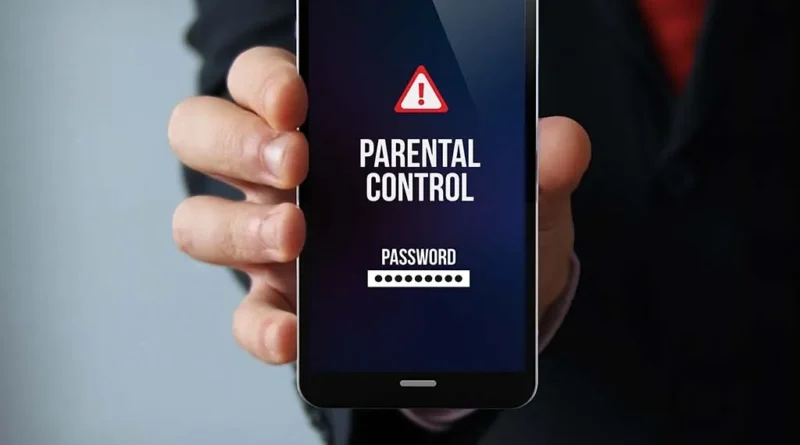The Role of Parental Control Apps in Promoting Digital Responsibility
The Role of Parental Control Apps in Promoting Digital Responsibility
In today’s digital age, the internet and smart devices have become an integral part of our lives, especially for children and teenagers. While these technologies offer numerous benefits, they also present significant challenges for parents when it comes to ensuring their children’s safety and fostering responsible digital behavior. Parental control apps have emerged as valuable tools to address these concerns, helping parents strike a balance between allowing their children to explore the digital world while keeping them safe. This article explores the role of parental control apps in promoting digital responsibility.
The Digital Landscape
The digital landscape is dynamic and ever-evolving. Children today are growing up in a world where smartphones, tablets, laptops, and the internet are omnipresent. These tools provide access to a wealth of information, educational resources, entertainment, and social connections. Safe online environment However, they also expose children to potential risks such as cyberbullying, inappropriate content, addiction to screens, and online predators. As a result, parents face the daunting task of teaching their children how to navigate the digital world safely and responsibly.
What Are Parental Control Apps?
Parental control apps are software tools designed to help parents monitor and manage their children’s digital activities. They offer a range of features that enable parents to oversee, limit, and guide their children’s online experiences. Common features of parental control apps include:
- Content Filtering: These apps can block or filter inappropriate websites and content to prevent exposure to harmful material.
- App and Screen Time Management: Parents can set time limits on device usage, ensuring that children don’t spend excessive hours in front of screens.
- Location Tracking: Some apps provide real-time location tracking, which is useful for ensuring a child’s physical safety.
- Usage Reports: Parents can view reports detailing their child’s online activities, including the websites visited and the amount of time spent on each.
- Social Media Monitoring: These apps often allow parents to monitor their child’s social media interactions and messages.
- Remote Control: Parents can remotely lock or unlock devices and apps as needed.
Promoting Digital Responsibility
Parental control apps play a crucial role in promoting digital responsibility in several ways:
- Safety: By filtering inappropriate content and limiting exposure to potentially harmful websites, these apps help protect children from dangerous or explicit material. This provides a safer digital environment where children can explore and learn without unnecessary risks.
- Balanced Screen Time: Excessive screen time can have adverse effects on children’s physical and mental health. Parental control apps assist parents in managing and setting reasonable time limits, encouraging a balanced lifestyle that includes physical activities and social interactions.
- Education: Parental control apps serve as educational tools, teaching children about responsible online behavior. As parents discuss the rules and restrictions, children learn the importance of making wise choices while using digital devices.
- Open Communication: These apps can foster open and honest communication between parents and children. When parents use parental control apps, they often engage in conversations with their children about digital responsibility, privacy, and the potential risks of the online world.
- Privacy Awareness: Parental control apps can help children understand the importance of privacy and the potential consequences of sharing personal information online. This awareness is crucial in preventing identity theft or online harassment.
- Empowerment: As children grow, parents can gradually reduce restrictions, allowing them to take on more responsibility for their digital lives. Parental control apps can facilitate a gradual transition toward self-regulation.
Choosing the Right Parental Control App
Selecting the right parental control app is essential to effectively promote digital responsibility. Here are some factors to consider when choosing an app:
- Compatibility: Ensure that the app is compatible with your child’s devices, operating systems, and online services.
- Features: Choose an app that provides the features you need, such as content filtering, app and screen time management, and social media monitoring.
- User-Friendly Interface: The app should be easy to use, with a user-friendly interface for both parents and children.
- Reliability: Opt for a well-established and reputable app with a proven track record.
- Privacy and Security: Make sure the app respects your child’s privacy and adheres to strict security protocols to protect the data it collects.
- Cost: Consider your budget, as some parental control apps offer free versions with limited features, while others require a subscription.
Conclusion
In a world where children are increasingly immersed in the digital realm, parental control apps have emerged as valuable allies for parents. They offer a practical way to ensure children’s safety while promoting responsible digital behavior. By filtering content, managing screen time, and encouraging open communication, these apps empower children to become responsible digital citizens, equipping them with the skills they need to navigate the online world safely and thoughtfully. However, it’s essential for parents to use these tools in conjunction with open communication and education to strike the right balance between control and trust, ultimately fostering a healthy and responsible relationship with technology.
